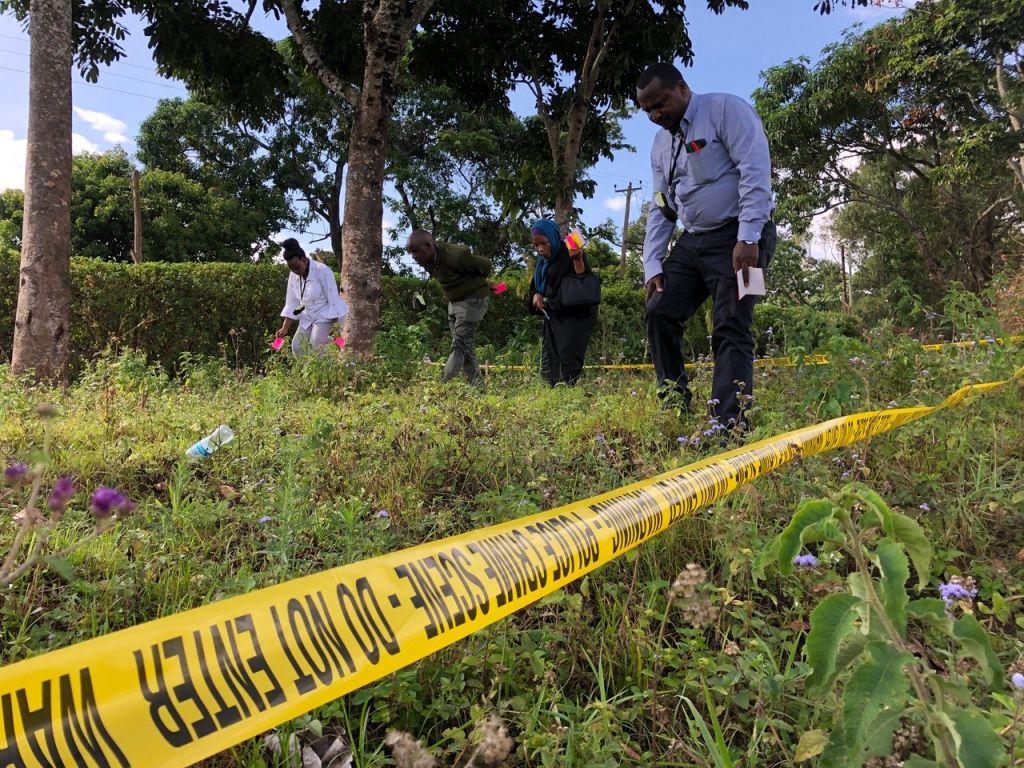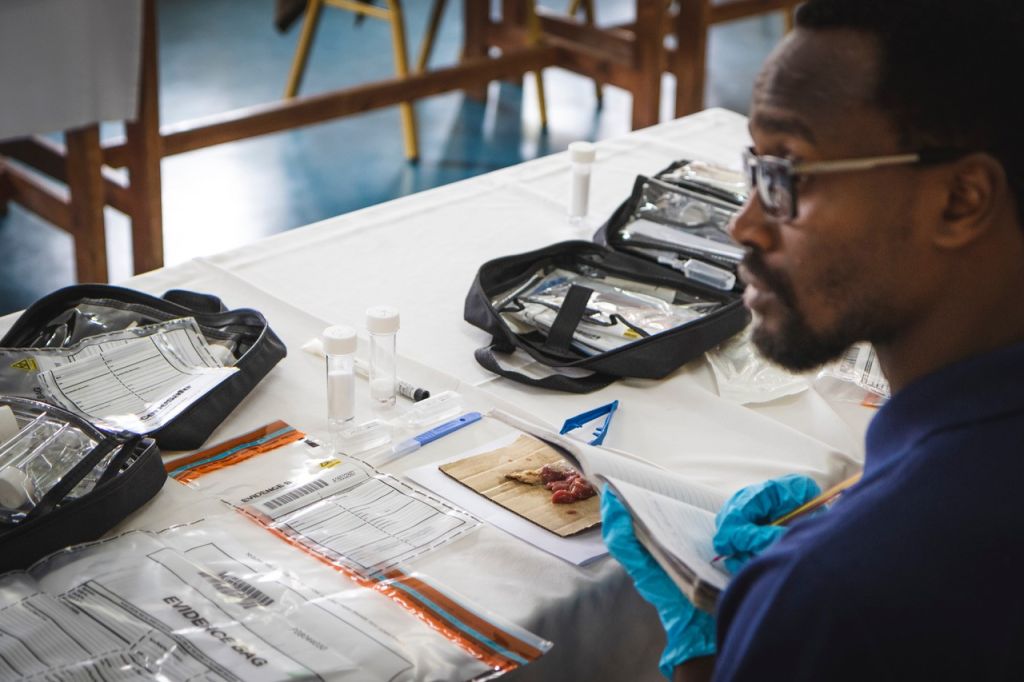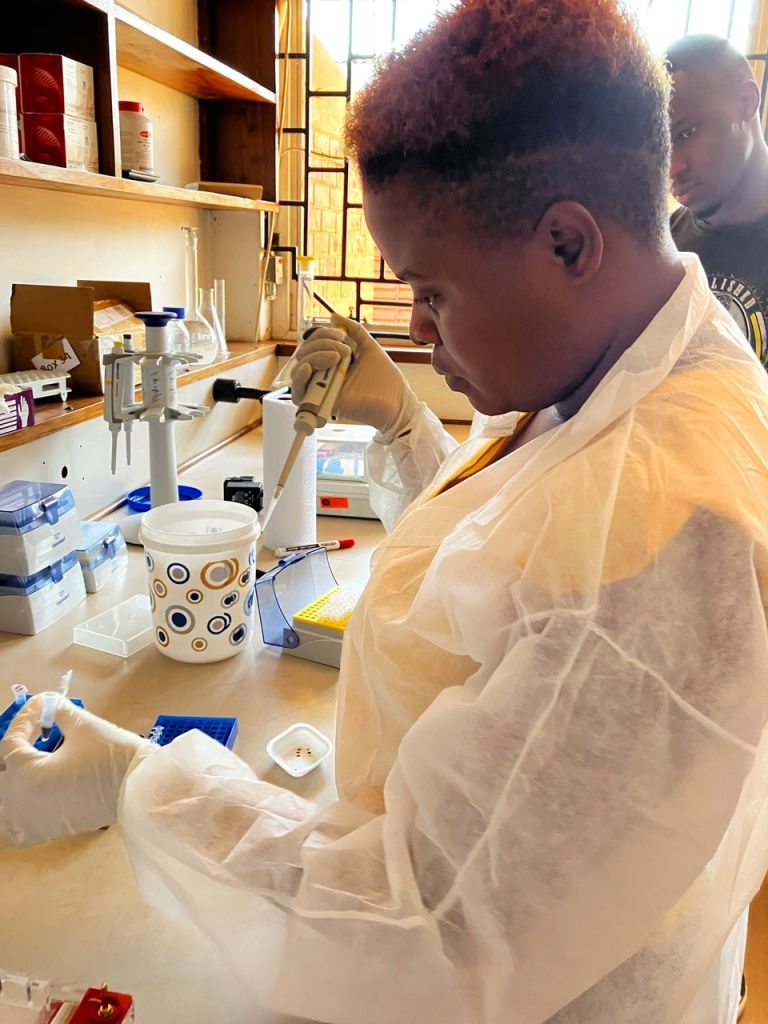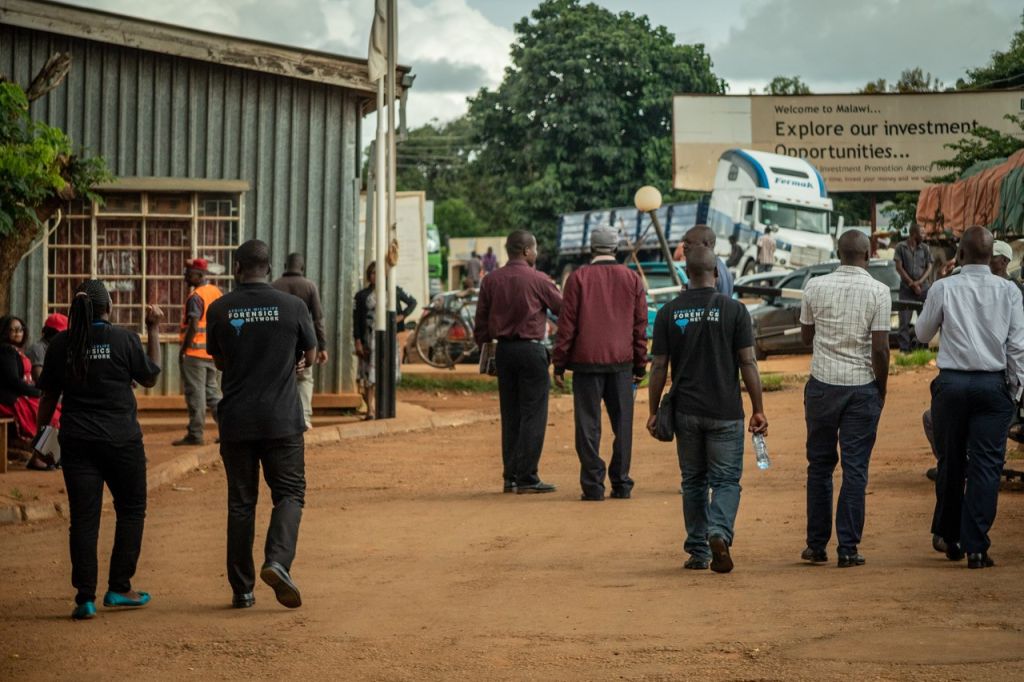What we do
Crime Scene
“Providing training, resources, and support for wildlife crime scene investigators and first responders.”
Wildlife crime scenes are often attended by enforcement officers with little or no experience of securing, searching and documenting a crime scene, or collecting and labelling evidence. In any given country, there may be hundreds or thousands of field officers that could potentially encounter a wildlife crimes scene. TRACE works with national ranger training programmes to deliver and institutionalize wildlife crime scene awareness training courses. These are then rolled-out to existing and new enforcement officers through national training programmes.
To facilitate and standardize wildlife crime scene awareness training, TRACE has worked in partnership with other members of the African Wildlife Forensics Network to develop the Wildlife Crime Scene Guide for First Responders. This Guide, and the accompanying Instructors’ Manual and Aide Memoire, are designed to assist trainers and trainees embed basic crime scene procedures within the wildlife investigator community.
All TRACE crime scene training is led by qualified, highly experienced crime scene investigators.

Evidence Management
“Establishing standard operating procedures and infrastructure for evidence management”
Legal challenges to the chain of custody of evidence is common practice during court proceedings. For forensic evidence to be admissible in court, wildlife law enforcement agencies must be able to demonstrate the secure management evidence from the moment it is identified at a crime scene until it enters the courtroom.
TRACE is helping national agencies to assess internal evidence management capacity and to develop institutional standard operating procedures for evidence security and management. These are then implemented through internal training programmes and the provision of evidence security infrastructure, increasing the admissibility of evidence in wildlife prosecutions.

Laboratory
“Developing in-country wildlife DNA forensic laboratories and novel forensic techniques.”
TRACE works with national law enforcement and forensic science agencies to establish access to appropriate forensic laboratory services. Laboratory requirements differ from country-to-country, and we work closely with governments to design solution that meet the short, medium and long-term needs of each nation’s wildlife investigation agencies.
Laboratory service development
The PELTS mobile laboratory system, supported by UNODC, is available for deployment throughout Africa and Southeast Asia. It offers short-term lab capacity enabling forensic genetic analysis of seizures in countries lacking laboratory facilities or supporting the timely processing of particularly large seizures (see video resources for more information).
TRACE also supports the design, planning and development of physical forensic laboratory infrastructure for appropriately mandated agencies. This includes installation of equipment and the implementation of laboratory Quality Management Systems that adhere to international forensic standards. Such capacity building is accompanied by long-term training support to help develop local, sustainable wildlife forensic science capability.
TRACE staff include internationally renowned wildlife forensic scientists with many years of experience in laboratory development. We have overseen the successful establishment of more than ten national wildlife DNA forensic laboratories in Africa and Asia since 2010.
Forensic method development
We conduct research and development of novel wildlife forensic science methods in response to critical and emerging analysis needs with the community. This has included new DNA tools for investigating poaching and illegal trade in timber, fish, birds, elephant, lion, pangolin, tiger and rhinoceros. Our methods are validated, published in peer-reviewed journals and made freely available to labs around the world (see our publications page for more information).

Courtroom
“Delivering expert witness training and advising the legal profession on wildlife forensics”
It is essential that forensic evidence is appropriately communicated and evaluated in court. This requires that forensic scientists are able to provide high quality expert witness testimony and that prosecutors and the judiciary can understand and appropriately question the evidence presented.
TRACE offers expert witness training to forensic scientists and provides wildlife forensic awareness training to the legal profession through a combination of in-person and online training courses.


